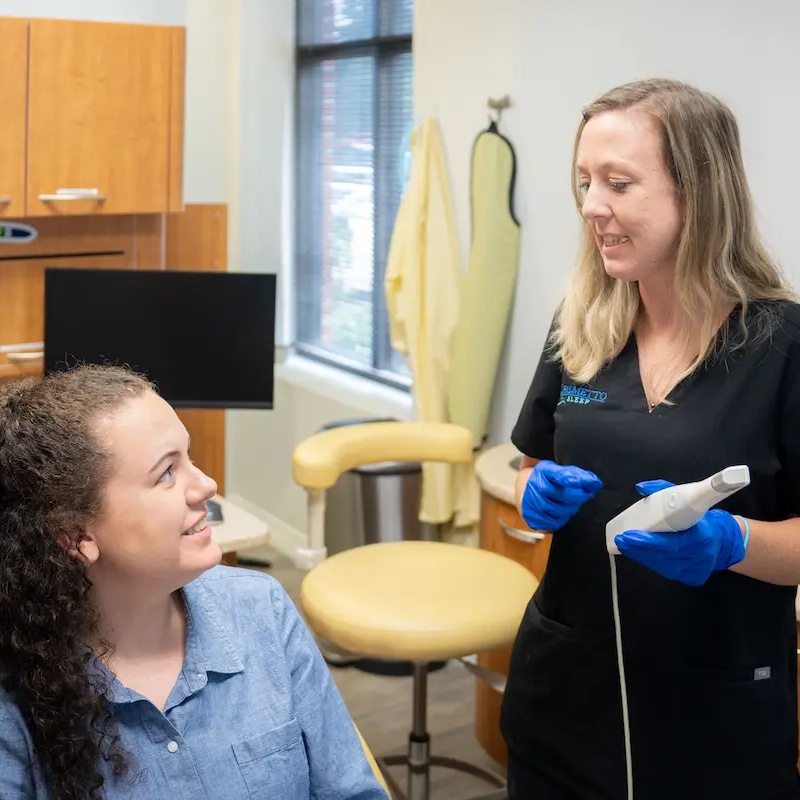Lifestyle and Sleep Apnea
Lifestyle Changes and Sleep Apnea: Building Better Sleep Habits
Sleep apnea is rarely an isolated condition. It is often shaped by daily choices, from nutrition and physical activity to stress and sleep routines. At Palmetto Sleep, we emphasize a whole-person approach to care, helping patients understand how lifestyle habits contribute to sleep apnea and how small changes can make a lasting impact.
How Lifestyle Affects Sleep Apnea
Several factors can increase or decrease the severity of sleep apnea. Weight, exercise levels, substance use, and even bedtime habits all influence how well you breathe during sleep. By recognizing these connections, you can take steps that improve both sleep quality and overall health.
Weight and Sleep Apnea
Carrying excess weight, particularly around the neck, raises the risk of airway obstruction at night. Fatty tissue in this area can block airflow, leading to obstructive sleep apnea (OSA).
Positive steps include:
- Choosing a nutrient-rich, balanced diet.
- Incorporating regular, sustainable physical activity.
- Seeking guidance from a nutrition professional for long-term success.
Exercise and Better Breathing
Consistent physical activity does more than help with weight—it strengthens respiratory function and encourages deeper, more restorative sleep.
Positive steps include:
- Engaging in 30 minutes of moderate exercise at least five times weekly.
- Trying activities like swimming or yoga to boost breathing capacity.
- Staying consistent with exercise habits rather than focusing solely on intensity.
Alcohol, Smoking, and Sleep Apnea
Alcohol and sedatives relax throat muscles, which can worsen apnea events. Smoking irritates and inflames the airways, creating further breathing difficulties.
Positive steps include:
- Reducing or eliminating alcohol, especially before bedtime.
- Enrolling in a smoking cessation program for long-term health.
- Finding healthier evening routines, such as meditation or light stretching.
Sleep Hygiene: Setting the Stage for Rest
Good sleep hygiene supports both sleep apnea treatment and overall restfulness. The environment and routines surrounding bedtime can directly impact sleep quality.
Creating the Right Sleep Environment
A cool, dark, and quiet bedroom can make falling and staying asleep easier.
Positive steps include:
- Following a consistent sleep schedule daily.
- Reserving the bedroom for sleep and intimacy only.
- Choosing supportive bedding and pillows for optimal alignment.
Technology and Bedtime
Blue light from phones and tablets interferes with the natural sleep cycle, making it harder to fall asleep.
Positive steps include:
- Turning off electronics at least an hour before bed.
- Using blue light filters if evening screen use is unavoidable.
- Replacing screen time with calming routines like reading or bathing.
Nutrition and Sleep Quality
What you eat influences how you sleep. Certain foods and habits can ease digestion, regulate energy, and support restorative rest.
Positive steps include:
- Choosing lean proteins, whole grains, and leafy greens.
- Avoiding caffeine and heavy meals close to bedtime.
- Staying hydrated during the day but limiting fluids before sleep.
Stress and Its Role in Sleep Apnea
Chronic stress can disrupt sleep cycles and worsen apnea symptoms. Learning to manage stress effectively supports both sleep and overall health.
Positive steps include:
- Practicing mindfulness, meditation, or deep breathing.
- Building a daily relaxation routine, especially before bed.
- Staying physically active to naturally reduce stress.
Putting It All Together
At Palmetto Sleep, we combine medical expertise with lifestyle support to help patients take control of their sleep apnea. From nutrition and exercise to stress relief and sleep routines, our team provides the guidance needed to make sustainable changes.
If you are ready to improve your sleep and overall health, contact Palmetto Sleep today to schedule a consultation. Together, we can create a personalized plan for healthier, more restorative nights.

Related Services
We'll See You Soon!
Phone:
(770) 230-0222
Email:
info@palmettosleep.com
Fayetteville
210 Trilith Pkwy #130
Fayetteville, GA 30214
McDonough
70 Westridge Pkwy #100
McDonough, GA 30253
Palmetto
501 Park St.
Palmetto, GA 30268
Zebulon
15988 Barnesville St.
Zebulon, GA 30295
Office Hours
Monday 8:30 am – 5:00 pm
Tuesday 8:30 am – 5:00 pm
Wednesday 8:30 am – 5:00 pm
Thursday 8:30 am – 5:00 pm
Friday 8:00 am – 12:00 pm
Saturday Closed
Sunday Closed
Excellence in Care for the Entire Family
Book Your Visit Today
Don’t wait, schedule your appointment with our friendly team today.
